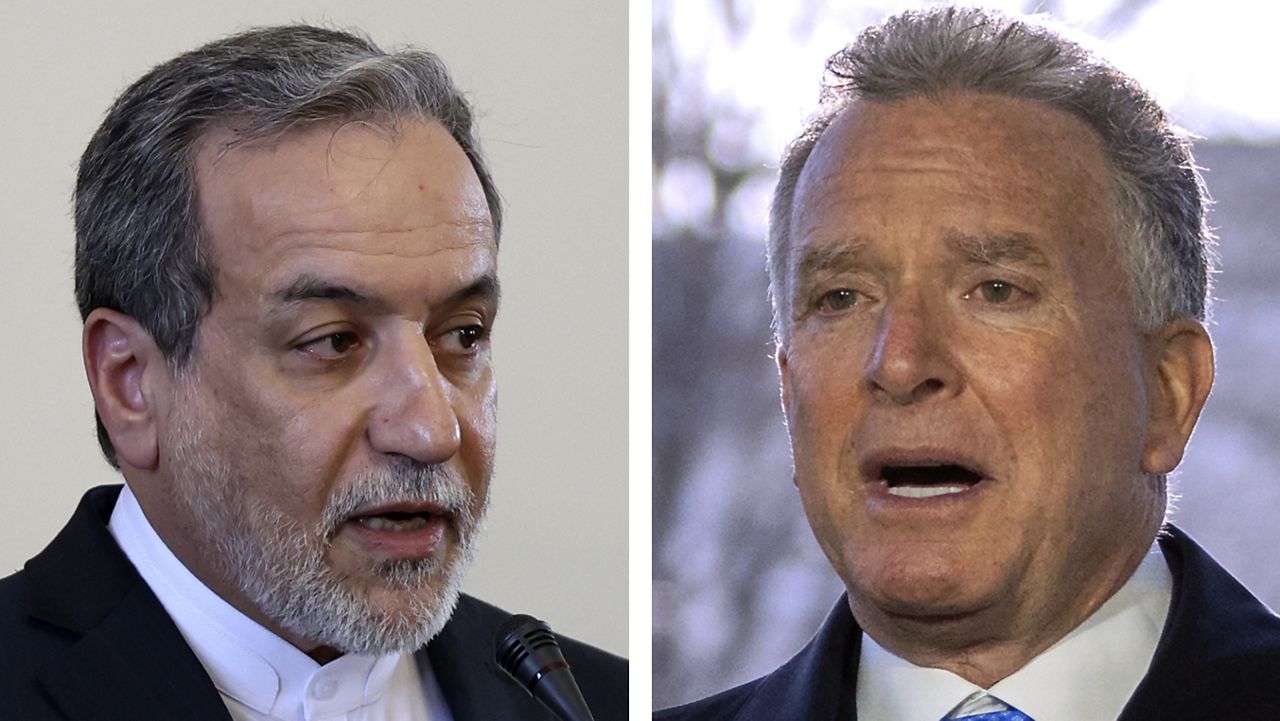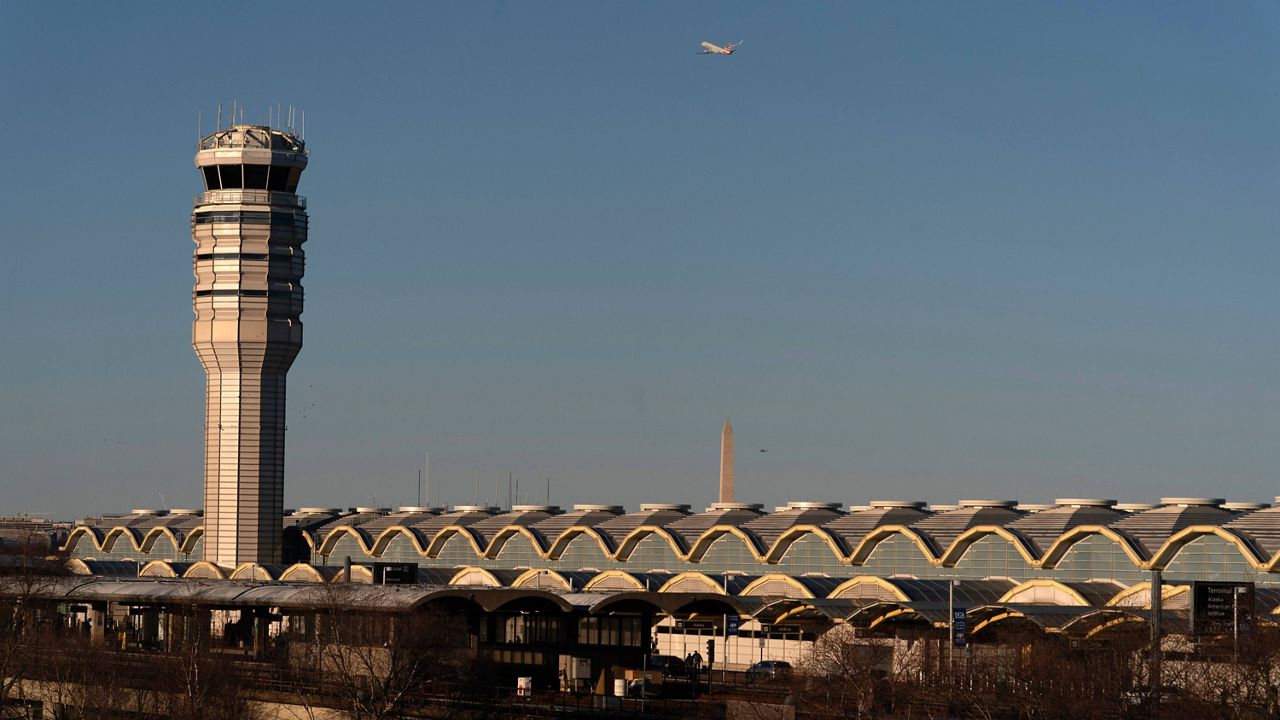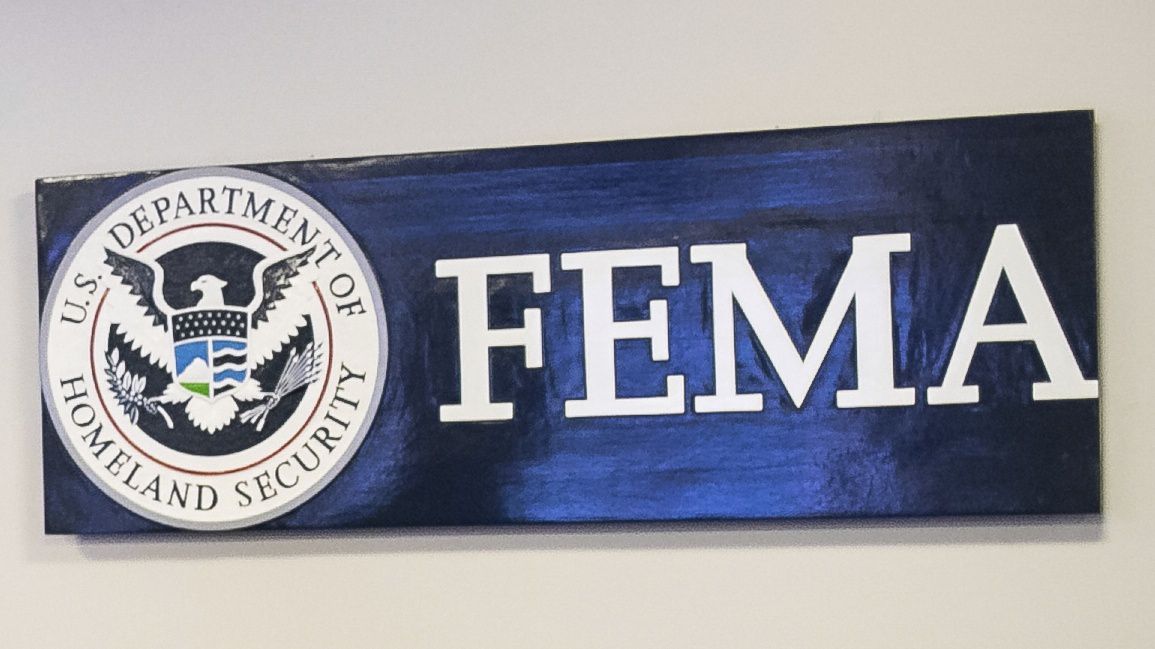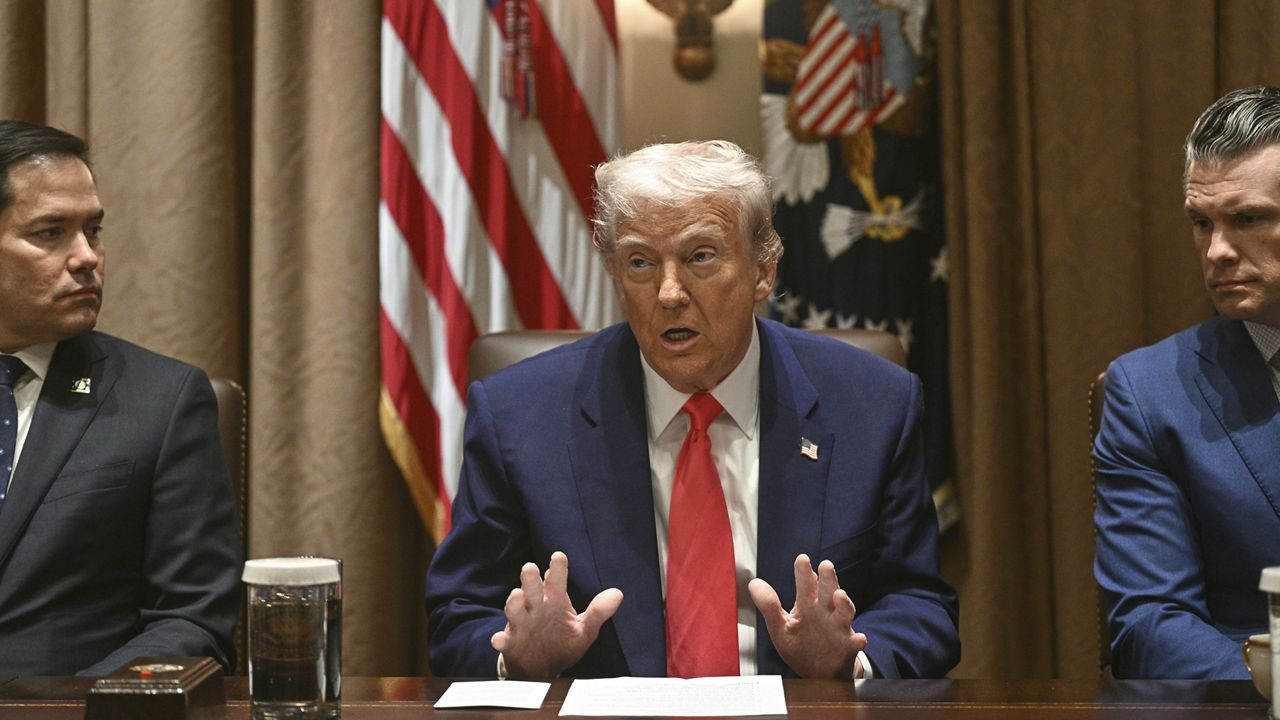Hosting the leaders of Japan and South Korea at Camp David on Friday, President Joe Biden declared, “The world will be safer as we stand together.” The three leaders used the history-filled presidential retreat to announce expanded security and economic cooperation in the face of a complicated Pacific.
“I can think of no more fitting location to begin our next era of cooperation – a place that has long symbolized the power of new beginnings and new possibilities,” Biden told South Korean President Yoon Suk Yeol and Japanese Prime Minister Fumio Kishida at a news conference following the three’s meeting. “And the months and years ahead, we're going to continue to seize those possibilities, together – unwavering in our unity and unmatched in our resolve.”
The agreements, Biden said, include annual multi-domain military exercises, increasing information sharing on North Korean missile launches and cyber activities, and establishing a hotline to facilitate communication and consultation amid a crisis in the region.
In a bid to their “new chapter of trilateral cooperation” Biden, Yoon and Kishida all committed to meeting yearly on what the U.S. president called the leader level.
Although all three maintained the meeting “was not about China,” it came amid growing concerns from the nations about their relations with Beijing as well as North Korea.“China obviously came up,” Biden acknowledged Friday.
“There are a range of threats and challenges in the Indo-Pacific. Some of those strengths and challenges are presented to us by the PRC [People's Republic of China] and certainly by North Korea, no question about that,” U.S. National Security Council Coordinator for Strategic Communications John Kirby said in an interview with Spectrum News on Thursday ahead of the summit.
“But there is also an awful lot of opportunities, shared interest and shared opportunities. And that is what they are going to focus on,” he added.
Friday’s meeting was a milestone for the president and the U.S. – marking the first time Biden has hosted foreign leaders at the historic Maryland retreat and the first ever standalone trilateral summit between the U.S., South Korea and Japan – as the two Asian countries work through years of frosty relations.
Tensions in the Japan-South Korea relationship go back to differing views of World War II history and Japan’s colonial rule over the Korean Peninsula.
But relations between the two countries have thawed over the last year as they share concerns about China’s assertiveness in the Pacific and North Korea’s persistent nuclear threats.
Now, Biden is hoping the historic getaway tucked in Maryland’s Catocin Mountains helps cement a new level of cooperation.
“I'm deeply grateful for your leadership, and I look forward to working with both of you as you begin this new era of cooperation and renew our resolve to serve as a force of good across the Indo-Pacific and, quite frankly, around the world,” Biden told Yoon and Kishida during brief remarks at the top their closed meeting.
Aside from the new measures to boost military coordination, the leaders also announced steps on the economy and health, including an early warning system pilot designed to alert the nations of disruptions in supply chains, Biden said.
“The takeaway that I hope people see when they see these initiatives is that they are really built for the long haul, that this isn't so much about talking about all the great work we've done over the last 2 1/2 years and how the cooperation has improved,” Kirby said. “It's really about, how can we make that cooperation better and more sustainable going forward for the long haul?”
Kirby said the meeting at Camp David, where presidents over 80 years have hosted historic peace summits and intimate leader-to-leader talks, is the product of the Biden administration’s focused efforts since the president first took office to bolster the relationship between the countries.
Earlier this year, Biden honored Yoon with a state visit and picked Kishida’s predecessor, Prime Minister Yoshihide Suga, for the first face-to-face visit of his presidency.
Yoon and Kishida both echoed Biden’s calls for tightening solidarity and coordination between the three countries at the start of Friday’s meeting.
“President Roosevelt once stated, 'Freedom is not a given, but something you fight to win.’ To make sure that each of our freedoms is neither threatened or damaged, our three nations must tighten our solidarity,” Yoon said through a translator.
“The fact that we – the three leaders – have got together in this way, I believe means that we are indeed making a new history as of today,” Kishida said, also through a translator, adding, “The international community is at a turning point in history.”
The Associated Press contributed to this report.









